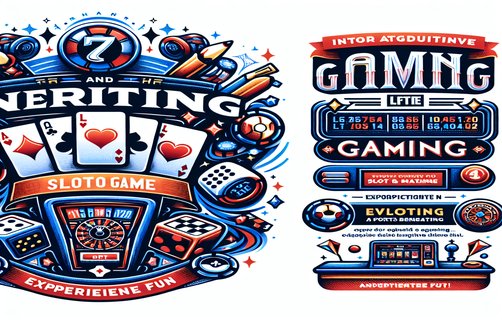Mastering the Art of Betting: A Comprehensive Poker Guide
पत्तों का खेल: जुआ में मास्टर बनने का गाइड
Betting in poker transcends mere chance; it is an intricate dance of psychology, strategy, and intuition. To excel at this game, players must master a blend of mental calm, understanding game positions, and effectively correcting missteps. Each poker hand tells a story, and deciphering that narrative can be key to success.
Mental calm serves as the bedrock for any successful poker player. In the frenetic environment of a poker table, where emotions run high and stakes escalate, the ability to maintain composure can differentiate between victory and defeat. Establishing a zen-like state enables players to make calculated decisions rather than emotional reactions, thus enhancing their strategic execution.
Game positions significantly influence betting strategy. Recognizing the strength of a player's position, whether it's early, middle, or late, can alter decisions on how much to bet, call, or fold. For instance, players in a late position can leverage the information gathered from earlier betters to make more informed choices about their hand strength and betting amount.
Blunder correction is an essential skill in poker. Mistakes are inevitable, but quick recovery from blunders is vital. Whether it's overcommitting chips on a weak hand or failing to adjust strategy after a bad beat, players must learn to recognize pitfalls and navigate out of them efficiently. Tools such as post-game analysis can aid in identifying recurring mistakes for future improvement.
Avoiding common betting missteps requires a profound understanding of risk prediction. Successful players often calculate odds and assess the potential outcomes of their bets. This involves not just evaluating one’s own hand, but also predicting opponents’ potential hands based on their behavior and betting patterns. It enables players to ally cautious betting with bold moves when favorable situations arise, striking a balance that maximizes profit while minimizing risk.
Emotional resilience further supplements a player's ability to stay in the game. The fluctuations of winning and losing can challenge even the most seasoned players. Building resilience allows one to bounce back from losses without letting frustration or elation cloud judgment. Techniques such as mindfulness can be employed to aid emotional grounding during the game.

In conclusion, mastering the art of betting in poker is a compass that guides players through complex terrains of strategy, risk management, and psychological endurance. Through cultivating mental calm, understanding game positions, correcting mistakes swiftly, predicting risks accurately, and building emotional resilience, players carve their path to poker mastery. Poker is a game of skill as much as it is a game of chance, and those who embrace this holistic approach are destined for success.
पत्तों के खेल में जुआ केवल भाग्य पर निर्भर नहीं होता; यह मनोविज्ञान, रणनीति और सहजता का जटिल नृत्य है। इस खेल में उत्कृष्टता प्राप्त करने के लिए, खिलाड़ियों को मानसिक शांति, खेल की पोजीशन को समझना, और गलतियों को सही ढंग से सुधारने का एक मिश्रण सीखना होगा। प्रत्येक पोकर्स का हाथ एक कहानी सुनाता है, और उस कथानक का विश्लेषण करना सफलता के लिए कुंजी हो सकता है।
मानसिक शांति किसी भी सफल पोकर खिलाड़ी की नींव है। पॉकर की मेज पर, जहां भावनाएं उच्च होती हैं और दांव बढ़ता है, स्थिरता बनाए रखने की क्षमता जीत और हार के बीच अंतर कर सकती है। एक ज़ेन जैसी स्थिति स्थापित करना खिलाड़ियों को यह सक्षम बनाता है कि वे भावनात्मक प्रतिक्रियाओं के बजाय गणनात्मक निर्णय लें, जिससे उनकी रणनीतिक क्रियान्वयन को बढ़ावा मिलता है।
खेल की पोजीशन दांव की रणनीति पर महत्वपूर्ण प्रभाव डालती है। एक खिलाड़ी की स्थिति को पहचानना, चाहे वह प्रारंभिक, मध्य, या अंतिम हो, दांव लगाने, कॉल करने या फोल्ड करने के निर्णयों को बदल सकता है। उदाहरण के लिए, एक अंतिम स्थिति में खिलाड़ियों को पहले के बेटर्स से प्राप्त जानकारी का उपयोग करते हुए अपनी हाथ की ताकत और दांव की राशि तय करने का अधिक सटीक निर्णय लेने की अनुमति मिलती है।

गलती की सुधारना पोकर में एक महत्वपूर्ण कौशल है। गलतियां अपरिहार्य हैं, लेकिन गलतियों से तेज़ी से उबरना आवश्यक है। चाहे वह कमजोर हाथ पर अधिक चिप करने का मामला हो या एक बुरा हारने के बाद रणनीति को समायोजित करने की चूक, खिलाड़ियों को खामियों को पहचानना और कुशलता से नेविगेट करना सीखना होगा। पोस्ट-गेम विश्लेषण जैसे उपकरण भविष्य में सुधार के लिए पुनरावृत्तिमूलक गलतियों की पहचान में मदद कर सकते हैं।
सामान्य दांव की गलतियों से बचना जोखिम की भविष्यवाणी की गहरी समझ की आवश्यकता होती है। सफल खिलाड़ी अक्सर संभावनाओं की गणना करते हैं और अपने दांव के संभावित परिणामों का आकलन करते हैं। इसमें न केवल एक के अपने हाथ का मूल्यांकन किया जाता है, बल्कि व्यवहार और दांव के पैटर्न के आधार पर प्रतिद्वंद्वियों के संभावित हाथों की भविष्यवाणी भी की जाती है। यह खिलाड़ियों को सावधानी पूर्वक दांव करने और इसी समय अनुकूल परिस्थितियों में बड़े कदम उठाने के लिए सक्षम बनाता है, और लाभ को अधिकतम करते हुए जोखिम को न्यूनतम करने का संतुलन बनाता है।
भावनात्मक लचीलापन खिलाड़ियों की खेल में बने रहने की क्षमता को और बढ़ाता है। जीतने और हारने की उतार-चढ़ाव कई अनुभवी खिलाड़ियों को चुनौती दे सकती है। लचीलापन बनाना किसी को हार से वापस उबरने की अनुमति देता है बिना निराशा या उत्साह को निर्णय को धुंधला किए। खेल के दौरान भावनात्मक आधार बनाने के लिए माइंडफुलनेस जैसी तकनीकों का उपयोग किया जा सकता है।
अंत में, पत्तों में जुआ की कला के मास्टर बनने का मतलब है खिलाड़ियों को रणनीति, जोखिम प्रबंधन, और मनोवैज्ञानिक सहनशीलता के जटिल परिदृश्यों में मार्गदर्शन करना। मानसिक शांति को विकसित करने, खेल की पोजीशन को समझने, गलतियों को जल्दी सुधारने, जोखिम को सटीकता से भविष्यवाणी करने, और भावनात्मक लचीलापन बनाने के माध्यम से, खिलाड़ी पोकर में मास्टर बनने का मार्ग प्रशस्त करते हैं। पोकर सिर्फ भाग्य का खेल नहीं है; यह कौशल का खेल भी है, और जो लोग इस समग्र दृष्टिकोण को अपनाते हैं, वे सफलता के लिए अद्यतित होते हैं।

comments
PokerGuru93
This article brilliantly captures the essence of poker strategy!
ChipMaster
Mental calm is definitely the game changer at the poker table.
BettingWizard
The insights on risk prediction are incredibly useful!
BluffKing
I love how it emphasizes emotional resilience; it's so important!
CardNinja
Great breakdown of game positions; I learned a lot!